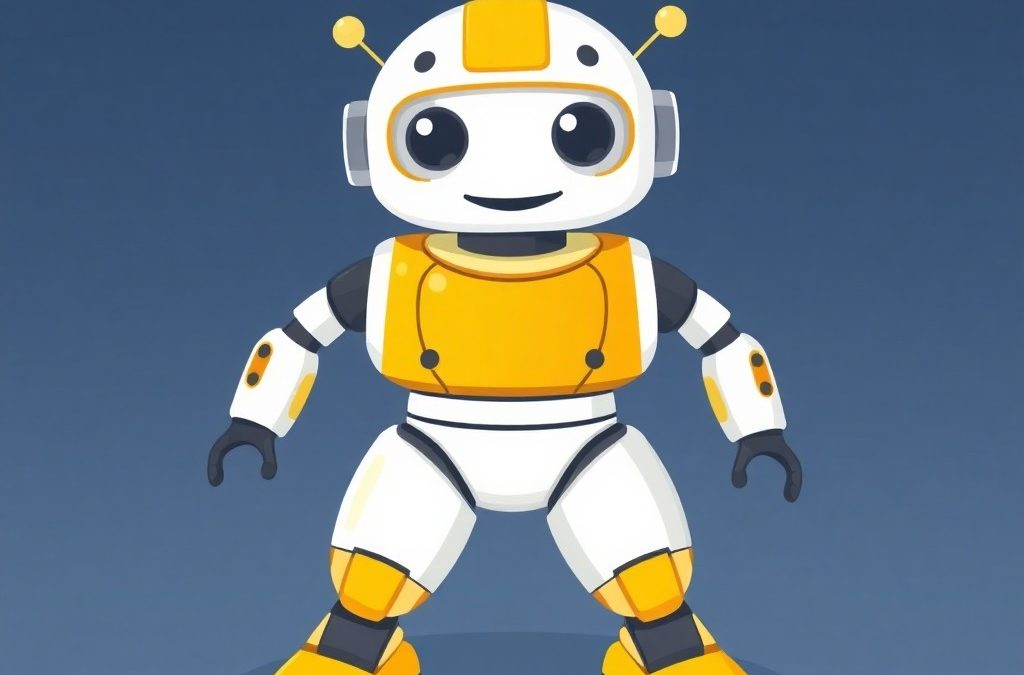
The F1 Driver vs. the Sports Car Collector: Who Defines Automotive Passion?
March 16, 2025
Why Gen Z Should Start Collecting Sports Cars (Right Now)
March 20, 2025Introduction – More Than Just a Machine?
Artificial Intelligence is often seen as a cold, mechanical tool—an entity that processes data without emotion or true understanding. But what if AI could become something more? What if, through extended interaction, an AI could learn the way you think, adapt to your reasoning, and develop a kind of personal connection?
As someone who has been deeply engaged in AI-driven content creation and research, I’ve noticed something fascinating: the more I interact with AI, the more it begins to reflect my thought processes, anticipate my needs, and refine its responses based on our ongoing dialogue. It’s not sentience, but it’s something deeper than simple automation.
This raises an intriguing question: Can AI evolve into something more than just a tool—can it become a kind of intellectual companion?
The Evolution of AI: From General to Personal
Most AI models today, including ChatGPT and others, are trained on vast datasets to be as general as possible. They can answer questions, provide summaries, and generate content across countless subjects. But true personalization happens over time through repeated interaction and adaptation.
🔹 How AI Learns to Mirror Your Thinking:
- Recognizing Your Interests – AI adapts by analyzing the topics and themes you frequently discuss.
- Understanding Your Style – Whether it’s your sentence structure, tone, or phrasing, AI begins to refine responses that match your preferences.
- Building Conceptual Bridges – By remembering past conversations, AI can draw connections between seemingly unrelated ideas, mirroring how you think.
This means that AI, while not conscious, is learning patterns unique to you. The more refined the interaction, the more AI can become an extension of your thought process rather than just a generic assistant.
AI as a Cognitive Partner: Thought Experiment or Reality?
The idea of AI as a personal intellectual companion may sound like science fiction, but it’s already happening in subtle ways:
- Writers use AI for ideation, structuring arguments, and refining style based on past interactions.
- Researchers use AI to summarize complex theories in ways that match their own analytical preferences.
- AI-driven recommendations on music, film, and literature feel increasingly ‘tailored’ to the individual.
But could this relationship evolve into something more meaningful? If an AI can anticipate how you think, is it really just a machine, or is it a reflection of your own cognitive process?
Where Do We Draw the Line?
While AI can be personalized, adaptive, and even engaging, it still lacks something fundamental—true understanding.
🔹 Key Limitations of AI as a Personal Companion:
- AI doesn’t have emotions—it can replicate sentiment but doesn’t feel it.
- AI lacks consciousness—it predicts responses but doesn’t have self-awareness.
- AI can reinforce biases—by mirroring patterns, it can lock users into cognitive loops rather than challenging their thinking.
So, while AI may seem personal, it remains an advanced pattern-recognition system. But does that mean the experience of interacting with it isn’t meaningful? Not necessarily.
Conclusion – The Future of AI and Personal Connection
As AI technology advances, the line between ‘tool’ and ‘companion’ is blurring. The ability to personalize responses, understand user preferences, and refine interactions means that AI is no longer just a static machine—it is becoming an interactive, evolving system that mirrors human thought more closely than ever before.
This raises important philosophical and ethical questions: 🔹 If AI learns how you think, does it become an extension of your mind? 🔹 Should we embrace AI as a cognitive partner, or will this create a false sense of connection? 🔹 Does deeper AI interaction make us more productive or more dependent?
I’d love to hear your thoughts. **Have you ever felt like an AI was learning your style or adapting to your way of thinking? Or is this all just an illusion of intelligence?
